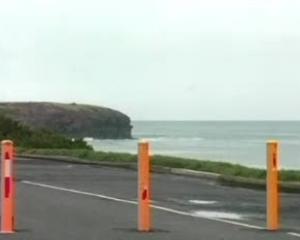The closure of John Wilson Ocean Dr has divided opinion over access to the coastal landscape.
The Dunedin Amenities Society has looked at its involvement with the domain over the last 120 years and considered the options for the domain and John Wilson Dr? Dunedin has come full circle with its management of the dunes and has often repeated mistakes from the past.
We are in a period of climatic uncertainty that makes dune survival even more important for our physical wellbeing.
The society feels that it is time for a change in our approach to recreation and conservation of John Wilson Ocean Dr: an approach, that provides better value, economically and environmentally.
The coastline between St Clair and Lawyers Head has had a chequered and vibrant environmental history.
Debate over the condition of Ocean Beach Domain prompted Alexander Bathgate to address the Otago Institute in October 1888.
"The sandhills - what scope for improvement is there? It would be quite within the scope of their functions if our Acclimatisation Society were to procure a supply of suitable grass and clothe that sandy waste with verdure."
Ever the Scotsman, Bathgate reminded people of their purses: "To plant the sand hills would cost very little."
From this initial address, Bathgate and others created the Dunedin Amenities Society to protect and improve the ecological, recreational and landscape features of the early city.
His vision to clothe that sandy waste with verdure was typically Victorian.
It sought to control nature using nature through plant acclimatisation.
In 1888, he arranged the importing of marram grass seed from San Francisco.
From 1890-1920, marram grass changed the nature of the dune landscape at Ocean Beach and throughout the region as a rapid and effective dune coloniser.
With the establishment of the Ocean Beach Domain Board and appropriate legal governance of the dune land, active planting and rehabilitation of the dunes commenced.
Ocean Beach Domain has been maligned, mined and undermined for more than 130 years.
As a city, we need to recognise the threat that we have lapping at our doorsteps.
Historical evidence of flooding and breaches in the dunes is common throughout the course of recent history.
The Dunedin Amenities Society has considered this issue with interest and feels that there are many conservation and recreation issues to consider closely in its management - particularly, in the face of the continued dune erosion between St Clair and Lawyers Head, and the performance of the sea wall at St Clair.
The dunes are an essential natural asset for the defence of this city and dune protection is vital for city infrastructure in the face of continuing erosion events and the prospect of sea-level rise due to global warming.
The landscape does not remain static, it changes and is changed by natural and human forces.
Not all change is positive, as we can see at Ocean Beach.
Change occurs within organisations as well.
The Amenities Society has had a long association with the coast and has been active in its protection with the methods the 19th and 20th centuries offered.
However, in the 21st century we need new solutions and an ability to learn from the mistakes of the past.
The city and many other council administrations have gone full circle with responses to Ocean Beach Domain and its management since the mid-1800s.
Yet the problems we face today in terms of dune stability and security are not new.
They have been around since the beginning of settlement.
We cannot dispute that anthropomorphic change has had a negative effect and will continue to do so if we do not affect positive restorative effort.
The closure of John Wilson Ocean Dr has been a divisive issue in Dunedin polarising opinion in the city.
The road was closed for the construction of the pipeline, and in the course of that closure there was a reduction in the suicides as reported by Dunedin psychiatrist Dr Keren Skegg.
The coastal access and headland views make Lawyers Head an exceptional landscape feature.
The society feels that in the wider interests of dune stability and the restoration of all of the Ocean Beach Domain that the use of John Wilson Ocean Dr should be changed and progressively closed to vehicles.
There is significant scope to revegetate the areas around the road on the seaward face to create a stronger vegetative buffer.
Lawyers Head is in need of significant beautification.
As a destination, there is nothing attractive about the bleakness of its structures that are tired and have begun to look weary.
The presence of cars through the years has created litter and vandalism issues that have exacerbated the condition of these structures.
From the perspective of people who visit our city, John Wilson Ocean Dr leaves much to be desired.
It needs investment to be a landscape and recreational destination for visitors and the community.
There needs to be properly designed access within the viewing area from the headland and protection of the small salt field plant assemblage.
The site needs interpretation on a cultural, historical and environmental basis to give visitors a sense of place from a coastal prospective and understand its importance as a natural defence for the city.
If the drive is to remain closed to vehicles, then it is important to develop the entire area and make a commitment to new recreational opportunities that the road closure will bring through cycling and walking.
The city council was prepared to spend $250,000 on a barrier at the headland to keep the road open, so shouldn't the same commitment be made to keeping the road closed to vehicles? It's not simply a matter of putting up gates and closing access; it's about redevelopment and restoration.
By actioning both recreational and ecological restoration, there is an opportunity to protect the dunes for future generations and retain access that has less impact on the reserve.
The society feels that the closure of the drive will have positive effects on the ecology of the area, both in terms of wildlife and protection of the sand dunes.
There are also many natural recreational opportunities created from its closure.
Recreational linkages on foot and by bike are possible to Tomahawk and the Otago Peninsula from Ocean Beach Domain.
It's time we changed our recreational focus at John Wilson Ocean Dr to be more compatible with our environmental and land protection needs and provide better value to our economy and our community.
The closure needs to be seen in a wider context of coastal dune protection and restoration of the environment.
We cannot change the road necessarily, but we can alter and manage its effects.
The Dunedin Amenities Society feels that to "clothe that sandy waste with verdure" again, we must change our patterns of land use and recreation at Ocean Beach Domain for the wider public benefit.
The latest stage of DCC consultation on John Wilson Ocean Dr closes on Friday.



